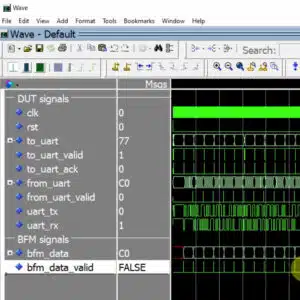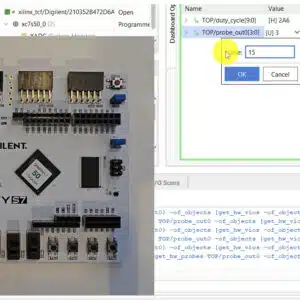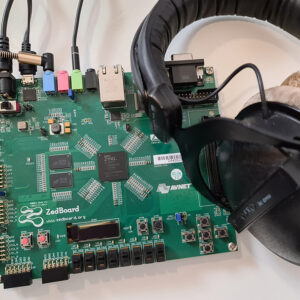Course: Delta cycles in-depth
Understanding how delta cycles work in VHDL is key to becoming proficient in FPGA design. This course teaches you how signal scheduling works in simulation.
Description
Delta cycles are zero-time timesteps used by simulators. For the novice VHDL developer, the concept can seem difficult to grasp. But as we shall see, there is nothing mystical or magical about delta cycles.
This course teaches everything you need to know about how signal signal scheduling works in simulation. I’ll show you how to view delta cycles in the waveform and how you can use them to your advantage in testbenches.
Do delta cycles exist in the FPGA, and what happens to them after synthesis?
Let’s find out together!
This course is only available in the VHDLwhiz Membership.
The membership subscription gives you access to this and many other courses and VHDL resources.
You pay monthly to access the membership and can cancel the automatic renewal anytime. There is no lock-in period or hidden fees.
Hardware used in the course
You don’t need the board, as I’m just using it in the final lesson to demonstrate a simulation mismatch due to misunderstanding how delta cycles work.
Software used in the course
I am using Windows in the course. All the other software is available for free for Windows and Linux:
⚠ Notice: free educational license required
Lattice Semiconductor now charges over $350/year for the iCEcube2 software.
Fortunately, VHDLwhiz, in cooperation with Lattice, offers a 1-year educational license for iCEcube2 to customers who purchase a course that uses the iCE40 FPGA.
Reply to the purchase confirmation email to request a free license.
- Questa – Intel FPGA Edition(includes Starter Edition)
(Any version of ModelSim or QuestaSim will work) - Microsoft Visual Studio Code
(Any editor will do) - Lattice iCEcube2 Design Software
Course outline
The overview below shows the lessons in this course.

1 - Why you need to understand this
Delta cycles play a crucial role in how signal scheduling and inter-process communication works in VHDL.

2 - Signal scheduling in VHDL
You can learn how every simulator executes your VHDL code by drawing the signaling scheduling table on paper.

3 - Future values
Delta cycles are only necessary for modeling events that are 0 ns into the future.

4 - Creating delta cycles deliberately

5 - Used for testbench interfaces
We can use delta cycles to build testbench interfaces that don't consume real-time.

6 - Delta cycles after synthesis
Delta cycles play a role synthesis of VHDL code, but no all delta cycles translate into hardware.

7 - Simulation mismatch due to delta delays
You need to be aware of these pitfalls with delta cycles that can cause a mismatch between the simulation and implementation.
This course is only available in the VHDLwhiz Membership.
The membership subscription gives you access to this and many other courses and VHDL resources.
You pay monthly to access the membership and can cancel the automatic renewal anytime. There is no lock-in period or hidden fees.





Reviews
There are no reviews yet.